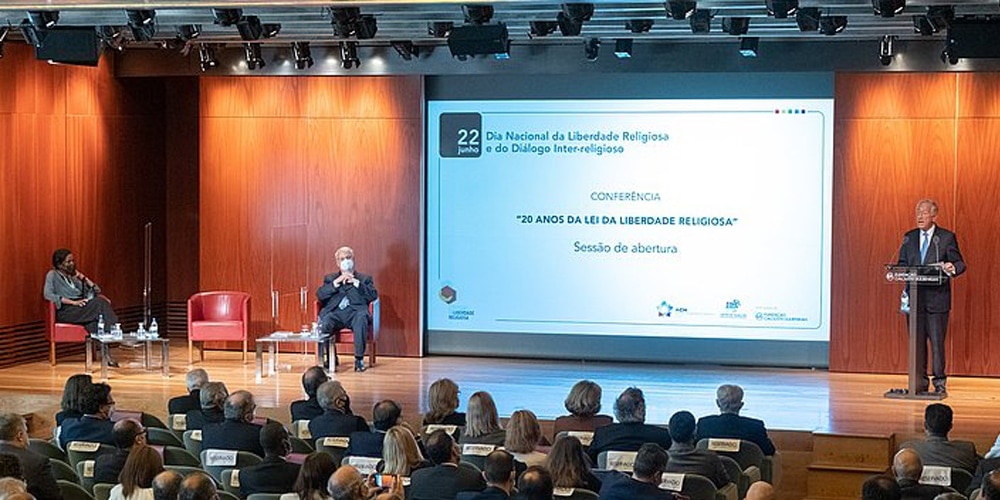
In Portugal, church and state have been separated by law since 1911, and religious liberty — under the principles of freedom of conscience, worship, and religion, equality, and non-discrimination for religious reasons — has been firmly guaranteed by the Constitution since 1976.
Not until 2001, however, did the state legally recognize rights for religious minorities similar to those conferred on the Catholic majority. These include the right to avoid work on the day of religious observance; religious marriage with civil effect; and spiritual assistance in hospitals, among others. Since then, with the approval of the religious liberty law, citizens and communities have enjoyed an open and tolerant legal framework to live, practice, and share their beliefs.
Celebrating the 20th anniversary of this law, Portugal’s Religious Liberty Commission, an official entity that defends and upholds the specifics of the law, and the High Commission for Migration, a governmental agency that promotes inter-cultural and inter-religious dialogue, organized a conference about the history, achievements, and future of religious liberty developments in Portugal during this period. The meeting included Portugal’s president, Marcelo Rebelo de Sousa, along with the Minister of the Premiership, the Minister of Justice, and other civil and religious leaders.
De Sousa highlighted the central role of the Constitution and religious law in Portugal, which separates church and state in a non-denominational state and respects the right to believe, practice, and share religious beliefs. He also added that it is important to bring the spirit of religious liberty into practice, affirming that “we all should do everything to overcome intolerable mistakes, incomprehension, discrimination, and injustice,” adding that there is still much to do, “day after day, to work [toward] a more tolerant, inclusive and generous society.”
This was also an opportunity to recognize the contribution of José Vera Jardim for the existence and enforcement of religious liberty law in Portugal. Vera Jardim, 82, who was awarded the Jean Nussbaum/Eleanor Roosevelt Award from the International Association for the Defence of Religious Liberty (AIDLR) in 2016, in Geneva, Switzerland, initiated the discussion on the creation of this document as the former Minister of Justice, proposed it as a Member of Parliament, and is presently the president of the Religious Liberty Commission.
The Seventh-day Adventist Church in Portugal was represented by Portuguese Union Conference president António Amorim and other church leaders who hold relationships with the state and interfaith groups, including communication in public channels and hospital chaplaincy.
Paulo Macedo, Portuguese Union and EUD PARL director, participated in a panel during the event. Macedo addressed the opportunities and challenges of religious liberty law in Portugal by highlighting a general principle and some specific cases.
“I suggest that with any future revision of this law,” Macedo said, “any future approval of a document repositions this principle as a human dignity imperative and a fundamental right, [that prompts us to ask,] ‘Does this action contribute to preserving and expanding freedom?’ ”
The PARL department of the Adventist Church has a long tradition of defending and promoting religious liberty. Religious liberty is a principle rooted in the Adventist message and actions.
The original version of this story was posted on the Inter-European Division news site.